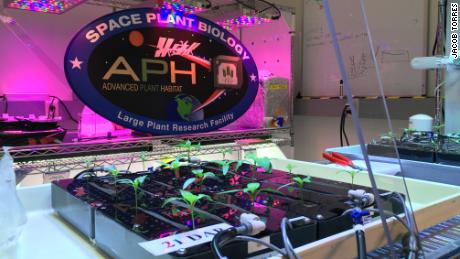If all goes according to plan, later this year in November, the International Space Station (ISS) might just get super-spicy. NASA’s big plans for space travel, which include heading to both the Moon and Mars, might start trips to other worlds on a regular basis.
In case this happens, these people will need food to survive, which means that finding a way to grow fruits and vegetables in outer space environments might prove to be a good idea. Now, the agency is focused on growing a new plant. Nasa has picked a new edible plant to be grown aboard the International Space Station for the first time. Researchers are hoping to send up Española chili pepper plants (Capsicum annuum), which would make the peppers NASA’s first space crop project. While peppers are often thought to be vegetables, they’re actually fruits, which would make the chili pepper the first fruit to ever be grown by NASA in space.
Regardless of all the excitement, picking plants to grow in space that can also prove to become potential food options for future missions has to be done with extreme care. A lot of considerations must be made, and these include whether or not a plant can provide the appropriate nutritional benefits for astronauts, as well as the individual requirements of each plant in terms of its water and mineral usage. And these are not the only issues to consider; there are many challenges when it comes to growing crops in space. For example, a plant must also be easily pollinated and able to survive in a high-carbon-dioxide environment.

NASA Plan Physiologist Ray Wheeler shared the agency’s thoughts on the exciting news, saying “We were also looking for varieties that don’t grow too tall, and yet are very productive in the controlled environments that we would be using in space.”
Wheeler explained that growing peppers could also have other benefits, like providing astronauts an option to spice up some of their somewhat bland food options in space. Peppers are also rich in Vitamin C, which is definitely a benefit, with Wheeler adding that it’s “important for space diets.”





